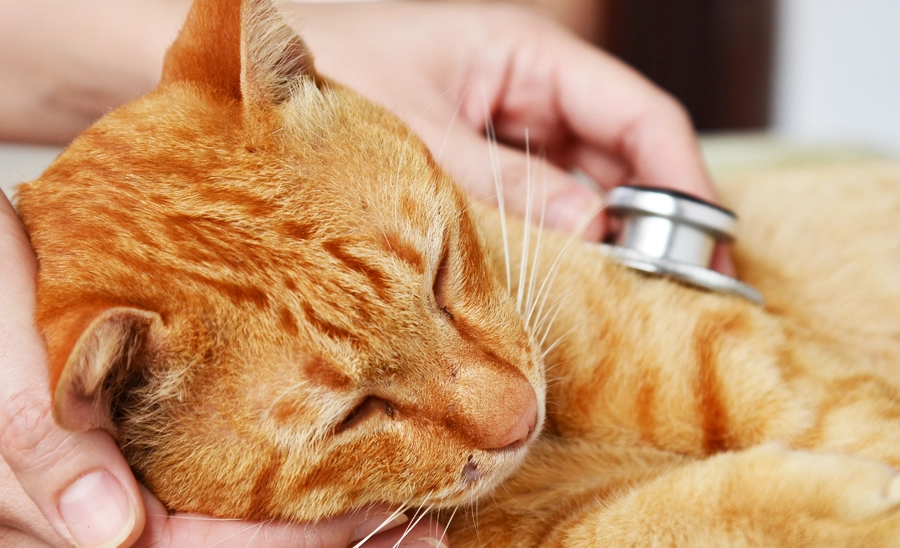
- Common intestinal worms live in your pet's intestines and feed on blood or intestinal contents
- Symptoms may include weakness, diarrhoea, poor growth, loss of appetite, vomiting, anemia, or no signs at all
- Some intestinal worms can pose an infection risk to humans
Worms Are Everywhere
- Pets can catch worms anywhere from; paddocks and parks to backyards and beaches; and are carried by wildlife, farm animals, insects and sometimes even turn up in under cooked meat
- Cats and dogs can become infected with intestinal worms in a number of ways; puppies can be born infected with worms, and along with kittens, can be infected through their mother's milk when suckling
- Pets can be infected when they accidentally swallow microscopic worm eggs or larvae (whilst grooming or chewing on a toy), some worms can even infect pets by directly penetrating their skin or can be transferred in the bite of an insect
- Pets that hunt and eat animals including lizards, mice and birds or scavenge animal carcasses are at higher risk of many intestinal worms
Some Worms Can Produce 200,000 Eggs A Day!
- Worm eggs can survive in the environment and remain infectious for several years
- Worm burdens in your pet can build up very quickly and make them feel quite sick; some can even be deadly
- The signs of infection are not always obvious; some pets don't even show signs of sickness when carrying worms but will contaminate their environment with worm eggs in their poo, putting other animals and even humans at risk of disease
You Can Keep Worms At Bay
- Clean kennels and your pet's bedding regularly
- Control pests that harbour worms including snails, slugs, mice, rats and fleas
- Remove poo from the garden and empty cat litter trays daily
- Avoid feeding your pet raw meat or offal
- Prevent pets from eating rodents, small animals and reptiles; provide sufficient high quality food and plenty of alternative activities to fill in their day to reduce their drive to hunt
- Always wash your hands thoroughly after playing with your pet and before eating
- If you have a sandpit make sure it is covered when not in use
- Treat all pets regularly with an intestinal wormer
Pests such as fleas and mosquitoes can transmit worms Heartworms Can Kill
- Deadly heartworms are transmitted to your pet by infected mosquitoes
- Unlike other worms, heartworms travel in the bloodstream and live in the heart and surrounding blood vessels for up to 7 years; growing up to 27cm in length
- While dogs and cats can both be infected with heartworms, they cause more severe disease in dogs
- Heartworm can still cause serious disease in cats, and when mosquitoes are about, even indoor-only cats are at risk
- Symptoms include coughing, weakness, decreased appetite, shortness of breath, swollen abdomen, fainting, tiredness, behavioural changes and sudden death
Lungworms Can Be Dangerous For Cats
- Lungworm infection can be a serious health problem for cats and can be fatal
- Cats can become infected after eating snails, slugs, rodents, birds or reptiles that carry the lungworm parasite
- Lungworms damage the lungs causing breathing difficulties and coughing
- Some cats show no symptoms or only mild symptoms that can be mistaken for hairballs
Speak to us for further advice and assistance finding the right product for your dog or cat.
Content provided by Bayer Animal Health.





